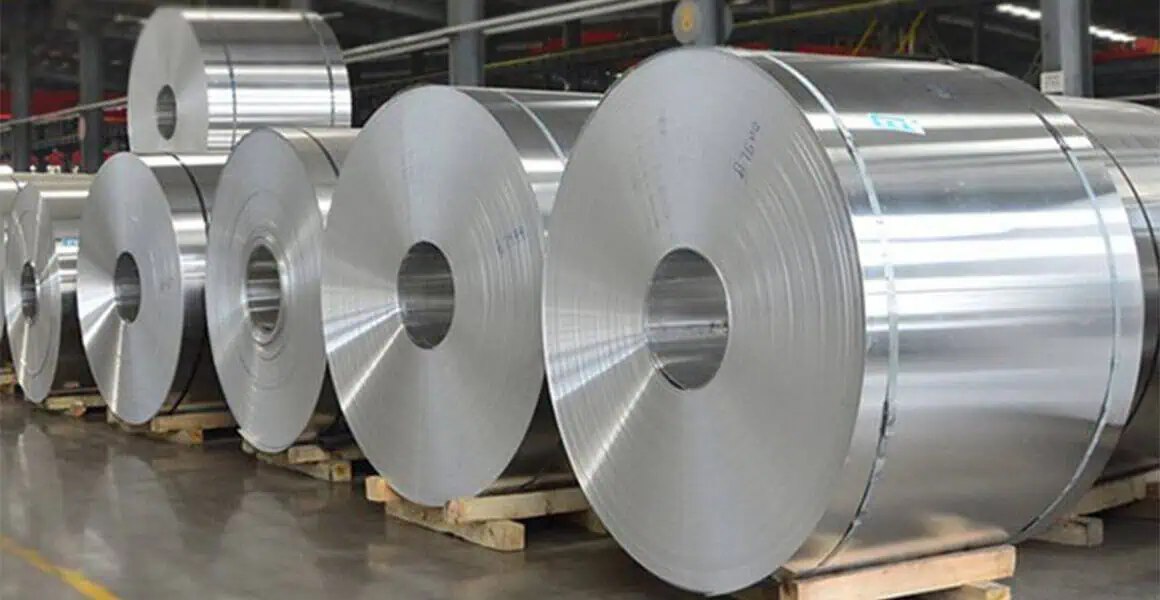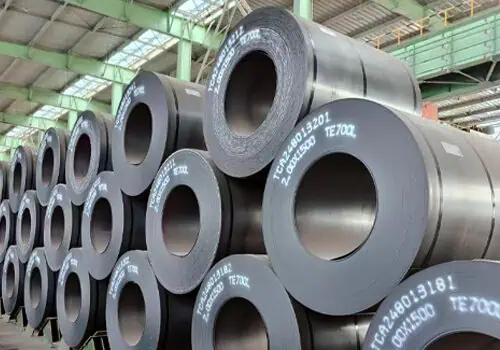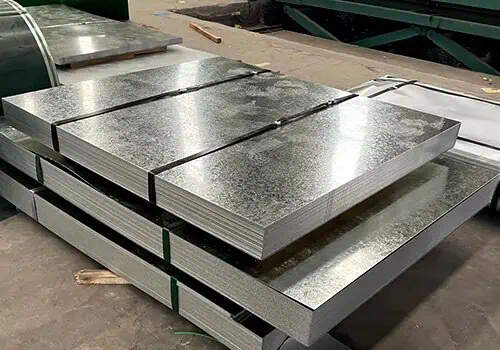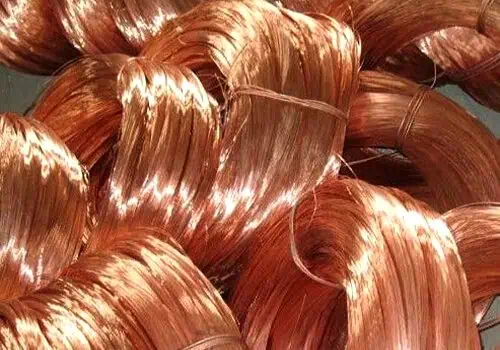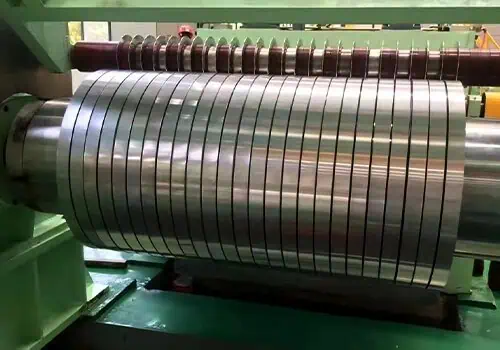Purchasing aluminum coils without knowing their processes causes delays, problems, and losses. What is aluminum coil processing? For worldwide purchasers, this guidance ensures quality, compliance, and a higher ROI.
Aluminum coil processing includes cutting, slitting, leveling, and surface coating. These steps customize coils for specific applications, ensuring durability and compliance. Reputable suppliers like Yuanchi also offer third-party inspections, certifications, and factory visits to confirm quality. Avoid costly mistakes by learning the process before purchasing.
Let’s look at how aluminum coil processing services affect performance, pricing, and buyer confidence.
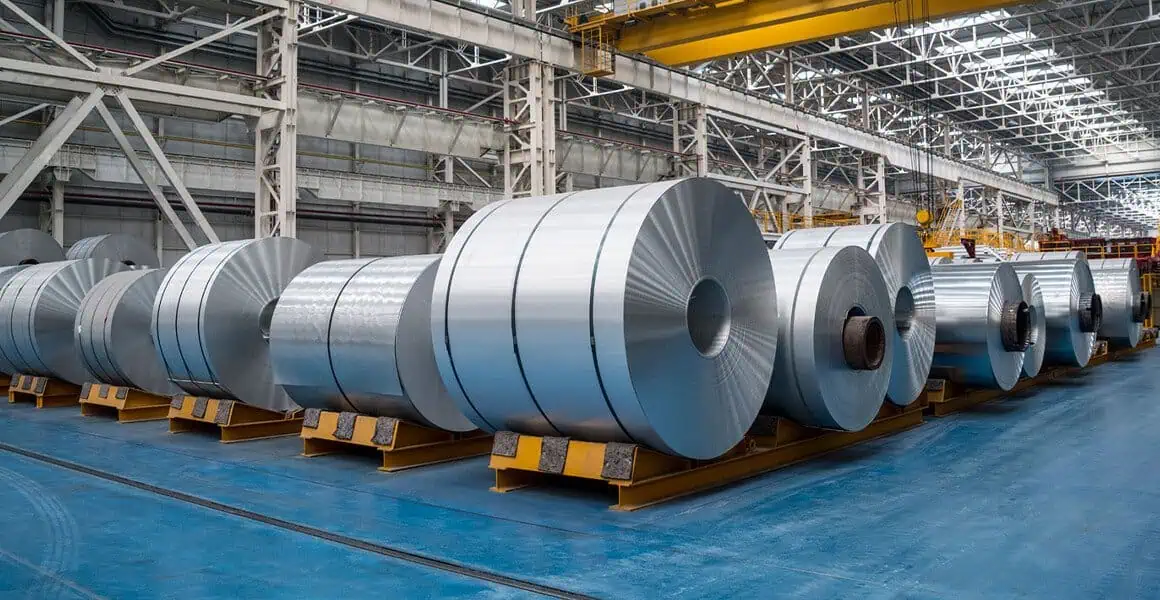
What Is Aluminum Coil Processing?
Aluminum coil processing is a set of precise procedures used to convert raw metal into useable forms particular to end-use applications. The procedure involves cutting to length, slitting, flattening, and applying finishes like as paint or anodizing.
This is not merely mechanical; it is strategic. Proper processing improves performance, increases product uniformity, and reduces field failures. Buyers of aluminum sheet and coil, particularly those in the construction or manufacturing industries, want accuracy to meet technical specifications.
At Yuanchi, our coil processing services are completely customisable. We provide narrow-width precision slitting, clean leveling, and protective aluminum coil coating. Clients can select from a variety of aluminum sheet colors, mill finishes, and pre painted folhas de alumínio, all adapted to their specific markets.
How Is Aluminum Coil Made?
Aluminum coils are produced using a stringent coil manufacturing process. Aluminum is first mined from bauxite and then processed into ingots. These ingots are hot-rolled into thin slabs and cold-rolled to the required thickness.
The last phase involves coiling and surface treatment. Advanced manufacturers, such as Yuanchi, use protective layers to prolong endurance. We often treat 3003 Bobina de alumínio, which has great workability and corrosion resistance, making it a popular choice in HVAC, roofing, and maritime applications.
What distinguishes us is our usage of modern rolling mills and aluminium toll processing. Our clients desire uniformity in thickness, tensile strength, and flatness, all of which are required for demanding applications.
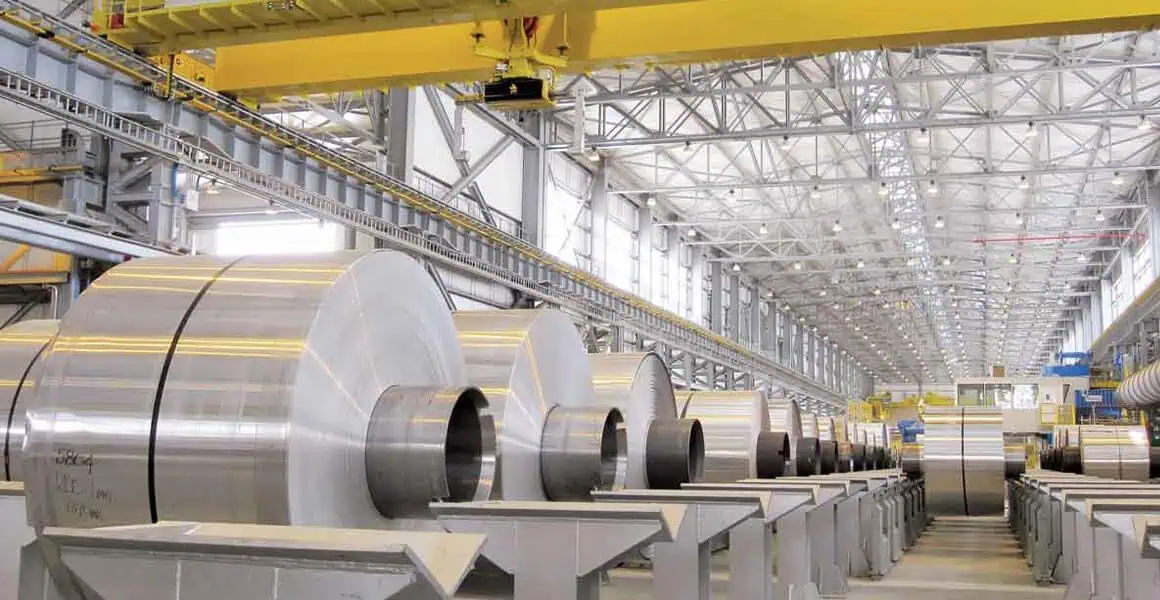
What Is Aluminum Coil Used For?
The applications for aluminum coil are vast. It’s used in:
- Roofing and wall cladding
- Insulation panels
- Heat exchangers
- Automotive panels
- Appliances and consumer goods
- Decorative trims
- Packaging and food-grade containers
Aluminum competes with copper and steel in several sectors due to its lightweight, conductive, and corrosion-resistant properties. Many of our clients distribute both aluminum coil and galvanized steel coil, depending on the project requirements.
Yuanchi supplies coils to over 20 countries, incluindo steel coil distributors, OEMs, and aluminum sheet roll suppliers. Whether you need ornamental anodized sheets or raw material for stamping, we’ll customize the finish, alloy, and dimensions to meet your specific requirements.
How Do You Cut Aluminum Coils?
Precision is key. The goal is to cut without introducing stress, burrs, or warping. The two main methods are:
- Slitting: slicing coils into narrower widths
- Cut-to-Length (CTL): cutting coils into sheets of specified lengths
These procedures need precise tension adjustments and sharp, well-maintained blades. The apparatus must also accept different coil weights and width.
Yuanchi has invested in sophisticated coil processing services, including slitting facilities that can handle both aluminum coil and stainless steel coils. Each job requires sample inspection, test reports, and photographic documentation. Our cutting standards remain high, whether the order is for copper coils or carbon steel coils.
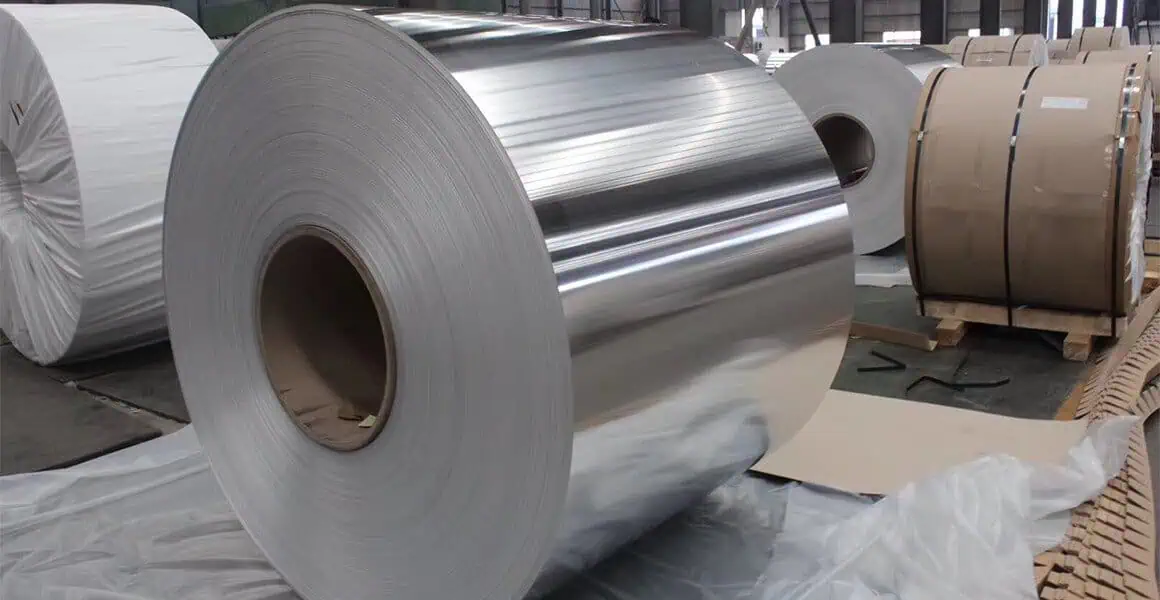
How To Identify Quality In Aluminum Coil Processing?
Quality in aluminum coil processing goes beyond look; it also includes consistency, dimensional tolerance, and mechanical performance.
Key quality indicators include:
- Flatness and edge quality
- Consistent surface finish (e.g., no oxidation or spotting)
- Correct temper and thickness
- Strong aluminum coil coating adhesion
Yuanchi provides full transparency to its clients. All coils are traceable, inspected, and certified. We encourage factory visits, video inspections, and third-party SGS reports. This is important for international buyers who wish to be confident in their Folha de alumínio metal suppliers.
Why Does Aluminum Coil Price Vary So Much?
Prices are influenced by:
- Alloy composition (e.g., 1100 vs 3003 Bobina de alumínio)
- Surface finish (mill vs coated vs anodized)
- Global aluminum prices and aluminum surcharges
- Processing complexity (e.g., tight tolerances or embossing)
Don’t forget the logistics. Coils are large, and ocean freight has been variable. Yuanchi gives precise quotations that break down aluminum coil prices, packing, and delivery. We assist clients minimize risk by providing buffer inventories and fixed delivery windows, which are especially useful during peak demand seasons.
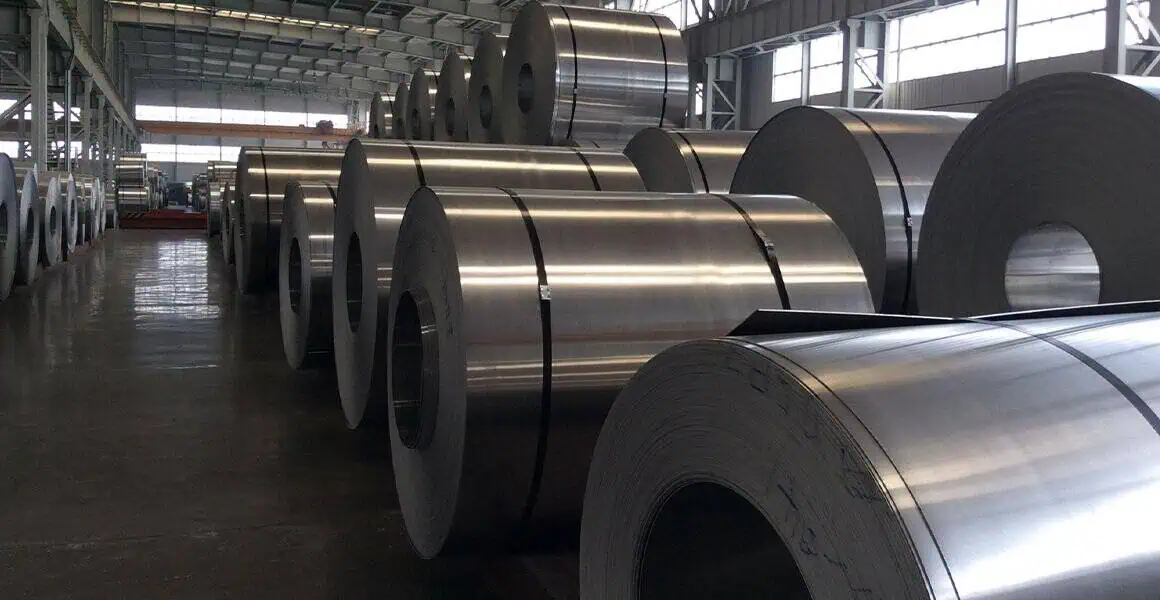
What Is The Aluminium Coil HS Code?
Customs categorization is necessary for international trade. The HS codes for aluminum coil sheet vary depending on the alloy and treatment.
- 7606.12: non-alloyed aluminum
- 7606.92: alloyed aluminum
- Other codes apply for coated or embossed products
Yuanchi has transported hundreds of coils with precise HS categorization. We also give the COC, Form E, and all required export papers. Whether you’re importing Bobina galvanizada, prepainted steel sheet, or stainless sales items, our staff will make sure everything goes well.
How Much Does Aluminium Coil Weight?
Weight varies based on coil width, grossura, and material density.
- A typical aluminum coil can weigh:
- 500kg for light coils
- 1–2 tons for commercial coils
- 3 tons+ for industrial rolls
Why does this matter? Weight influences freight costs and handling procedures. Yuanchi assists customers in optimizing container loads for maximum efficiency. Every aluminum sheet and coil is branded with its net weight, dimensions, and alloy information, making unloading and warehouse administration easy.
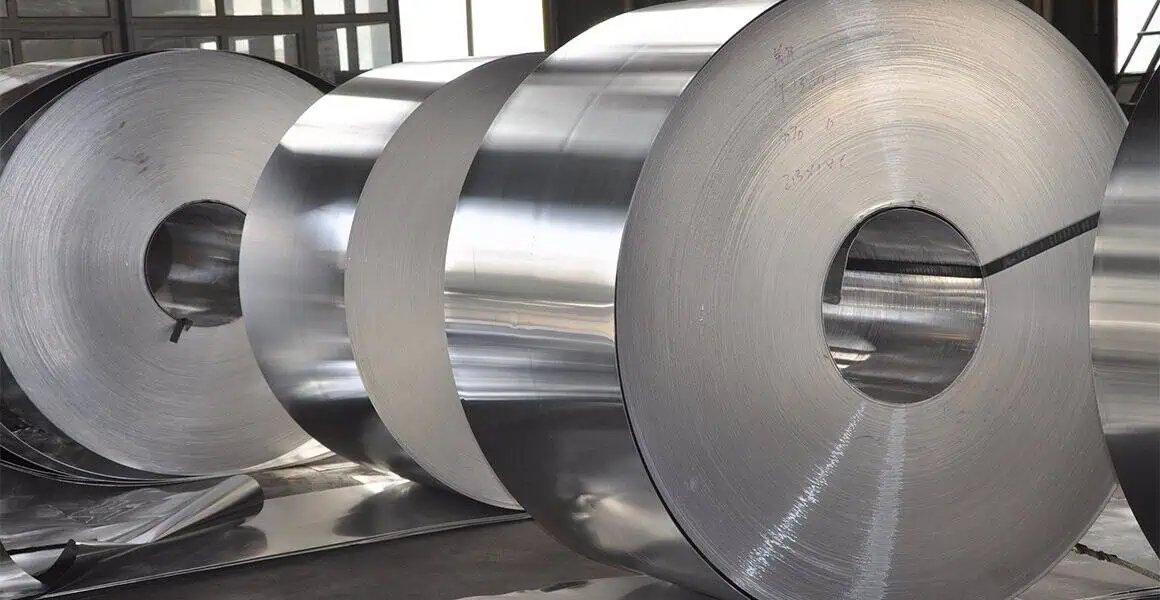
Where To Find Reliable Aluminum Coil Manufacturers?
Finding a steady source is more difficult than it appears. You require experience, references, technology, and openness.
Yuanchi checks all boxes:
- 18+ years of export experience
- Long-term clients in Argentina, Brazil, and Mexico
- Flexible order quantities
- Custom packaging
- Third-party inspection support
- Expertise in galvanized steel coil, bobina de aço inoxidável, bobina de cobre, and carbon steel coil
- Trusted by steel slitting companies and aluminum sheet metal suppliers
We’re not just a factory—we’re your supply chain partner.
Do Aluminum Coils Rust?
Aluminum, unlike iron, does not rust; rather, it oxidized. This is truly a good thing. The oxide coating that accumulates on aluminum coils protects them from further corrosion. In most climes, it deters deterioration for decades.
Yuanchi provides pre-anodized choices for tough locations, as well as aluminum coil coating layers. These advancements allow our clients in coastal locations, where even galvanized coil may fall short, to securely increase product longevity.
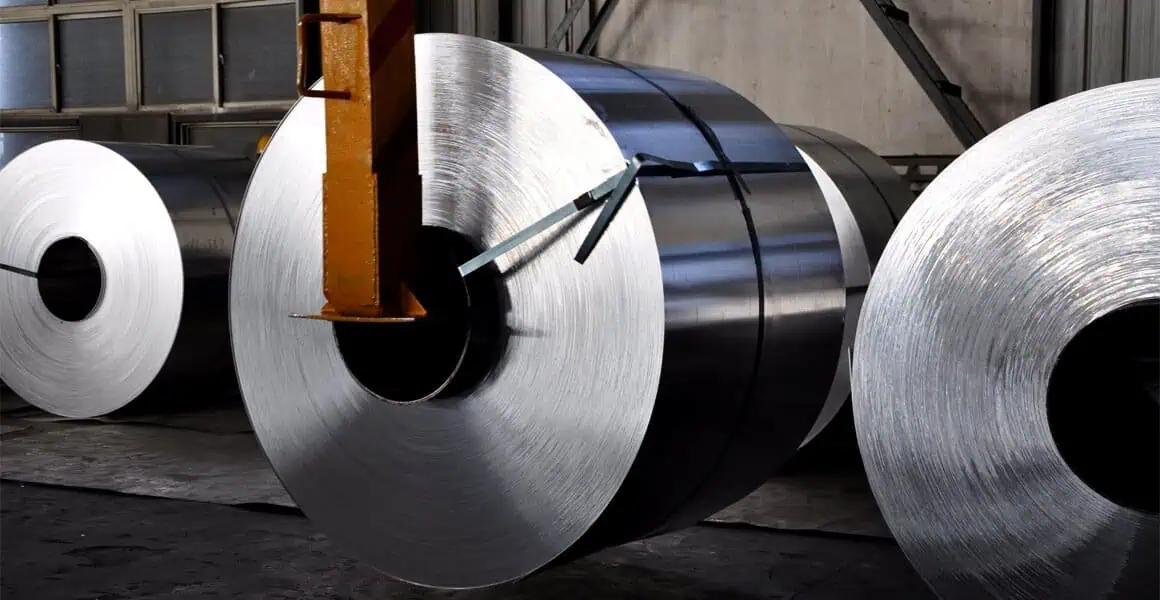
How Long Do Aluminum Coils Last?
Durability depends on:
- Alloy selection
- Coating or finish
- Installation quality
- Local environment
On average, well-processed Bobina de alumínio lasts:
- 25–40 years in roofing
- 10–15 years in automotive
- 5–10 years in consumer goods
Yuanchi advises clients on the best alloy and coating for long-term performance. We also provide warranty documents and product lifespan estimates, which are vital for purchasers bidding on government or infrastructure projects.
Summary
Understanding aluminum coil processing helps to reduce delays and quality difficulties. Yuanchi provides proven quality, experienced service, and complete transparency, making us your go-to metal supplier globally.

